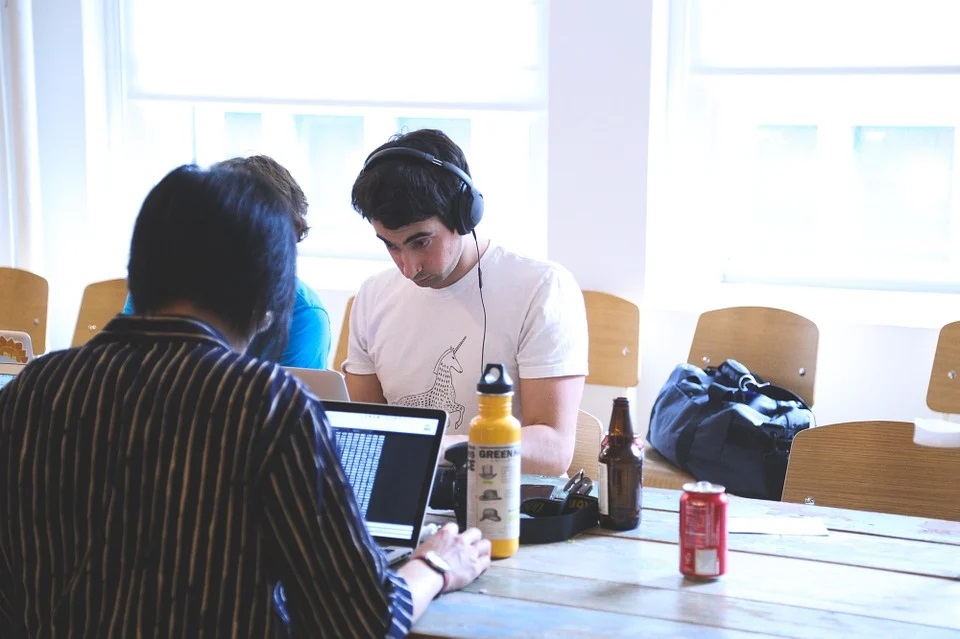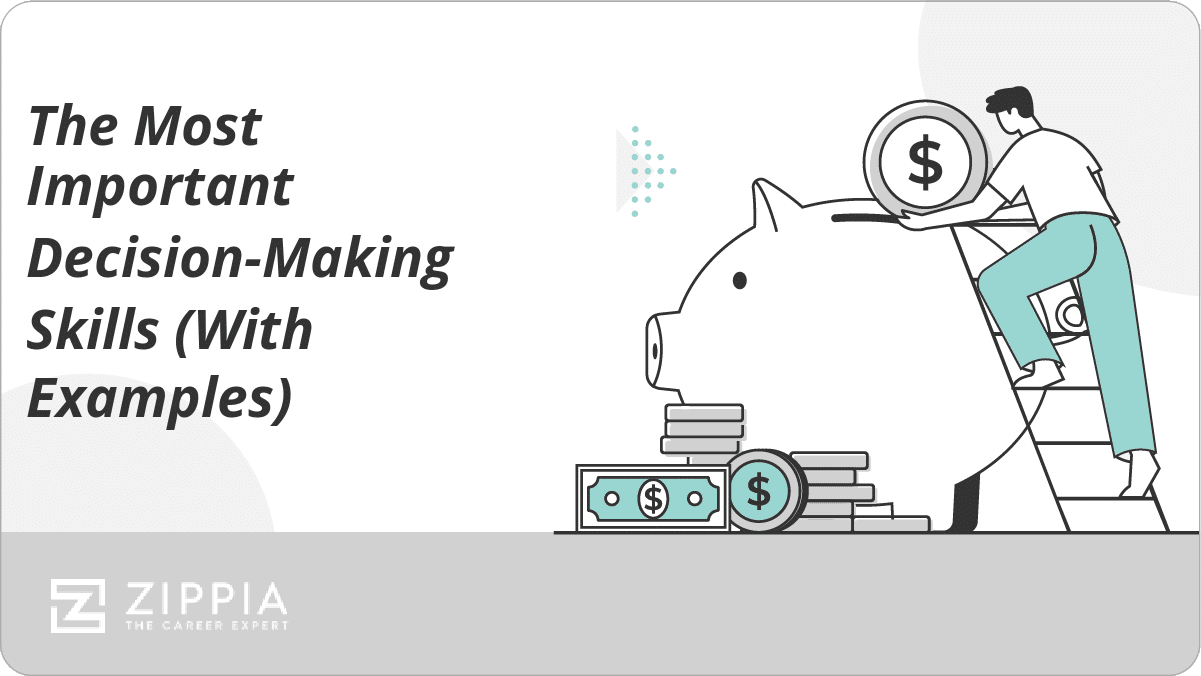- Interview Prep
- Star Method For Answering Questions
- Interview Preparation Checklist
- Star Interview Questions
- Words To Use In An Interview
- Mock Interview Preparation
- How To Make A Good Impression
- Bring Writing Samples
- How To Relax Before An Interview
- Interview Coaching
- Common Video Interview Mistakes
- Common Phone Interview Mistakes
- How To Ace Your Interview For A Remote Job
- Good Weaknesses For A Job Interview
- Good Strengths For A Job Interview
- How To Prepare For A Phone Interview
- Talk About Being Laid Off
- How To Decline An Interview
- How Early Should You Arrive For An Interview
- Types Of Interviews
- Communication
Find a Job You Really Want In
Even if you’re a seasoned interviewee, there are some differences between online and in-person interviews that you should be aware of. In this article, you’ll learn how to prepare for and ace your online interview.
What is an Online Interview?
Online interviews are regular job interviews that are conducted over video call. This makes it possible to have a face-to-face interview long distance, whether just the interviewee is in another location or all of the interviewers are working remotely as well.
They’re usually preferred over phone interviews, because you can see each other’s faces and body language, which makes them more effective.
Recruiters often use online interviews as initial candidate screenings to see if it’s worth it to the company to bring the applicant out to visit, but it’s becoming more and more common to use them to conduct the entire interview process.
Because of this, it’s important to be able to prepare for not only the interview itself, but also the quirks that come with online interviews.
How to Prepare for an Online Interview
While the basics of preparing for an interview don’t change when it’s being held online, there are some additional steps that you should take to make sure you’re ready.
-
Check the Time Zone. One of the first things you should do when you schedule an online interview is to check and double check which time zone it’s set to. Missing this detail has derailed many an interview, and it’s easily avoidable.
-
Download the Software Ahead of Time. Once you know what platform you’re going to be using for your interview, go ahead and download it. You don’t want your first impression to be you struggling to unmute yourself, so take the time to learn how to operate it smoothly.
-
Find a Good Space. While everyone knows there are challenges that come with interviewing remotely, do your best to cut down on interruptions and distractions.
Find a quiet space that you can close off from your pets and kids, and make sure your background is as neutral and professional as possible. While no one expects it to look like you’re actually in an office, you should avoid having a pile of dishes in the background.
-
Set Up Your Lighting. Poor lighting can be extremely distracting on a video call. If you’re going to be near a window, make sure you don’t sit with it behind you. Instead, sit facing it or close the blinds and situate a lamp so that it’s shining softly on your face.
-
Use Your Headphones. Using headphones on a video call will not only help you stay focused, but it will also improve your audio quality for the interviewers.
-
Make a Cheat Sheet. One of the best parts about online interviews is that the interviewers can’t see what else is on your desk. Use this to your advantage and write yourself some notes to reference during the meeting. Don’t from them, but having a list of points you need to hit or questions to ask can be really helpful.
-
Dress Professionally. It’s true that interviewers will only see your top half, but on the off chance your webcam drops or you have to get up to remove a kid from the room, make sure the rest of your outfit is presentable as well.
-
Look at the Camera. While it may seem counterintuitive and awkward to you, making “eye contact” with the camera when you speak will help your interviewers feel like you’re looking at them instead of at your screen.
-
Lighten Your Internet’s Load. If you can, make sure you get the smoothest connection possible by disconnecting your other devices from your network and asking others in the house to do the same. If you have a number of interviews coming up, you might even want to consider paying for a stronger wifi connection for a month or two.
-
Don’t Worry. Finally, remember that your interviewers are human too and understand the challenges that come with an online interview. If your internet drops, your pet runs by, or your child yells in the background despite your best efforts, don’t worry about it: Think of it as a great opportunity to show your adaptability, professionalism, and problem solving skills.
Common Interview Questions
It’s always a good idea to practice answering common questions before an interview. Here are a few to get you started.
-
Tell Me About Yourself.
Don’t be intimidated by this question’s vagueness. Focus on your professional history and passions, and stay relatively brief.
Example Answer“I have been working in communications for a little over ten years now, and during that time I’ve only grown in my passion for connecting with people. I’ve honed my written and spoken skills over the years, as well as my ability to use new resources and technology to further an organization’s communications goals.
“Now I’m looking for a new opportunity to use my experience to help others grow in their communications skills through teaching.”
-
Why did you apply for this position?
This is your opportunity to share what interested you about the position, as well as why you’re interested in working for this particular company.
Do your research ahead of time to make sure you have a well-informed answer.
Example Answer“I love developing websites to fit companies’ needs, and I’m passionate about global sustainability. When I saw what amazing things your organization is doing in this field, I wanted to get involved and use my talents to help further your efforts.”
-
Why should we hire you?
Your interviewer wants to hear your pitch about what will make you an excellent employee. Use this opportunity to share what your experience and technical skills will do for the organization.
Example Answer“With my background in sales and eight years of experience in management, I would be able to use my skills in this department to mentor and train up-and-coming salespeople rather than simply managing them.”
-
What is your biggest accomplishment?
Your answer to this question should be in anecdote form. Explain the situation, the steps you took, and the specific result of your accomplishment. Make sure you choose an example that relates to the job you’re applying for.
Example Answer“In my last position, I was in charge of managing inventory. I noticed that the tracking system we were using was slow and error-ridden, so I came up with a proposal for a new system and presented it to management. They implemented it, and the company has seen a 5% drop in losses from inventory errors.”
-
What are your greatest weaknesses?
This question has two purposes. One is to make sure that you’re self-aware and know that you aren’t perfect, and the other is to make sure that you’re working on your weak spots.
Choose an example of an area that you actually struggle with but that you’re also taking steps to improve on.
Example Answer“I’m not naturally gifted at making presentations, but I’ve been taking classes and have been taking on some more presentations so that I can practice.”
-
Tell me about a time that you failed.
The most important thing to remember when answering this question is to show what you learned from the experience and what you did to make sure it didn’t happen again. Everyone fails, but it’s what you do with it that’s important.
Example Answer“The first time I was put in charge of a team project, I failed to meet the project’s deadline. We finished it, but it was a week late, and it was due to my poor job at setting smaller deadlines and keeping track of our progress.
“I apologized to my team and my supervisor and asked what I could do differently in the future. Since then, I’ve been very intentional about creating schedules and setting deadlines for projects, and the five teams I’ve led since have all successfully met their deadlines with a high quality product.”
-
What motivates you? Or, when were you most satisfied in your job?
Whichever way this question is asked, your interviewer wants to know what gets you excited about your work. Try to give an example to provide more context and detail.
Example Answer“I love checking off tasks and setting and reaching goals. When I worked in sales, I would set a personal sales goal each week, and each week I would raise it. I got excited when I saw that this position was very project and goal-oriented.”
-
Where else have you applied?
Interviewers ask this question to get a better idea about how serious you are about this position or to see who they’re competing with. You don’t need to go into too much detail about where else you’re applying and should try to circle back to the role you’re interviewing for.
Example Answer“I’ve applied for a few different teaching jobs at elementary schools in the area. I was most interested in this one though, because it would give me the opportunity to teach several subjects instead of just one.”
-
Why are you leaving your current job?
If you were laid off, that’s all you need to say. If you weren’t, remember to be brief and positive. Always try to tie it back to why you’d be a valuable addition to this company.
Example Answer“Even though I enjoyed working at the company, I would love to be able to use both my design and coding skills, and this position would allow me to do that.”
-
Tell me about a time you dealt with a difficult coworker.
This question is intended to reveal your interpersonal and conflict resolution skills. Tell a specific story, and remember to end with the positive result of your efforts.
Example Answer“I was assigned to work on a project with a coworker who was known for being standoffish and unpleasant. I went into our first meeting with an intentionally pleasant attitude and focused on getting to know and connect with her.
“By the end of our project, we weren’t best friends, but it was a pleasant experience, and we’ve continued to work well together since then.”
-
Where do you see yourself in five years?
Interviewers often ask this question to get to know you and your professional goals and to see if you’re intending to be at the company for the long haul. Share your goals when you answer, as well as how you will reach them.
Example Answer“In five years, I would like to be an experienced copywriter who can use my skills to not only write great content, but also to mentor younger writers. I know your company culture values mentorship, and I’m excited that I would have the opportunity to be a part of that in this position.”
-
What makes you unique?
In other words, why should we hire you instead of the other qualified candidates we’re talking to? To prepare for this question, you can ask others how they would answer it for you or think about compliments and feedback you’ve gotten over the years. Just make sure you explain where you’re getting your answer from instead of leaving it at a simple, “I’m awesome.”
Example Answer“At my last company, we had to read our client reviews each month. One common thread with my reviews was that my clients said they felt like they were the only client I had and that I truly cared about what they needed or wanted.
“This, combined with my design skills that resulted in several national awards, makes me uniquely qualified for this role.”
-
How would your last boss describe you?
It’s important to be truthful in your answer to this question, because your interviewer can and might call your boss to ask for the real answer. This is also a great opportunity to bring up some more traits that haven’t come up yet.
Example Answer“I believe my last boss would describe me as reliable, diligent, and great at connecting with my coworkers and clients.”
-
What is your ideal salary?
Always base your answer to this question on research. Provide a range that is appropriate to someone of your experience level in your geographic location, and then express that you’re willing to negotiate, especially if you’re early on in the interview process.
Example Answer“I saw that the average salary in Connecticut for someone of my experience level is between $35,000 and $40,000, but I’m flexible and willing to negotiate.”
-
What do you like to do during your free time?
One of the main purposes of an interview is to allow hiring managers to see if your personality is a good fit for their organization, so be genuine in your answer while still keeping it professional.
Example Answer“I enjoy hiking and going on bike rides. It relaxes me while still giving me a challenge to conquer, and I can do it alone or with friends.”
-
How do you manage your workload?
Most jobs have a wide variety of tasks and deadlines that you’ll need to be able to manage, and interviewers want to know you’ll be able to do this. Be detailed in your answer so that your interviewer can see that you have a process.
Example Answer“I keep a running to-do list that I revisit every Monday morning to prioritize my tasks for that week. Then I use a color-coded calendar to create my schedule. Prioritizing my tasks allows me to be flexible if something comes up while still getting everything done on time.”
-
When can you start?
This is a straightforward question that needs a straightforward answer. If you’re flexible, be sure to communicate that too.
Example Answer“I’ll be moving to the city next weekend, so I can start as soon as the following Monday. I’m flexible beyond that, though.”
-
If you were an animal, what would you be?
Questions like this help interviewers get a better picture of your personality, creative skills, and ability to think fast. There isn’t a right answer, so keep it fun and professional.
Example Answer“That’s a great question. I would say I’d be an elephant, because I’m both fun-loving and responsible. What would you be?”
-
Is there anything else you’d like us to know?
This is a chance for you to expound on any qualifications you haven’t had a chance to mention yet. You can share a story or detail that will give your interviewer a more complete picture of who you are and what you bring to the table.
Example Answer“One thing you should know about me is that I love to teach myself new things. I’m always looking up how-to videos and books at home.
“This carried over into my work in my last job when my supervisor asked me to complete a mail merge from Microsoft Word. I had never done this before, but I quickly looked up a tutorial and was able to complete the task quickly and accurately.”
-
Do you have any questions for me?
This is a common closing interview question, and it’s your opportunity to find out more about the position and express your interest. You should come prepared with a list of questions to ask, as well as any you might have thought of during the interview itself.
Example Answer“I do have a few, actually. Earlier you said that this position works on a lot of interdepartmental projects. Can you tell me more about this?”
What To Ask in an Online Interview
Here are some examples of questions you should ask your interviewer at the end of the meeting:
-
What do you like best about working here?
-
Do you have any hesitations about my qualifications?
-
What is the staff turnover rate? How long did the person who previously held this position work there?
-
What is a typical day like for someone in this position?
-
What challenges come with this position?
-
What have past employees done to succeed in this position?
-
What does success look like for someone in this position?
-
What professional development opportunities do you offer your staff?
-
Is there anything we haven’t covered that is important for me to know about working here?
What Not To Ask in an Online Interview
While it’s important to know what you’ll be getting into if you get this position, there are some questions that you shouldn’t ask in an interview. Some of them may be appropriate once you get a job offer (if asked tastefully), but they are never appropriate in the initial interview process.
Here are some examples of questions that will make you seem lazy, uninterested, or entitled in a job interview:
-
What does the person in this job do?
-
What does this company do?
-
How quickly can I get promoted?
-
When can I start taking my vacation days?
-
How often do I have to actually come into the office?
-
Do you have a dress code?
-
What benefits do you provide?
-
Do I get an employee discount?
- Interview Prep
- Star Method For Answering Questions
- Interview Preparation Checklist
- Star Interview Questions
- Words To Use In An Interview
- Mock Interview Preparation
- How To Make A Good Impression
- Bring Writing Samples
- How To Relax Before An Interview
- Interview Coaching
- Common Video Interview Mistakes
- Common Phone Interview Mistakes
- How To Ace Your Interview For A Remote Job
- Good Weaknesses For A Job Interview
- Good Strengths For A Job Interview
- How To Prepare For A Phone Interview
- Talk About Being Laid Off
- How To Decline An Interview
- How Early Should You Arrive For An Interview
- Types Of Interviews
- Communication





